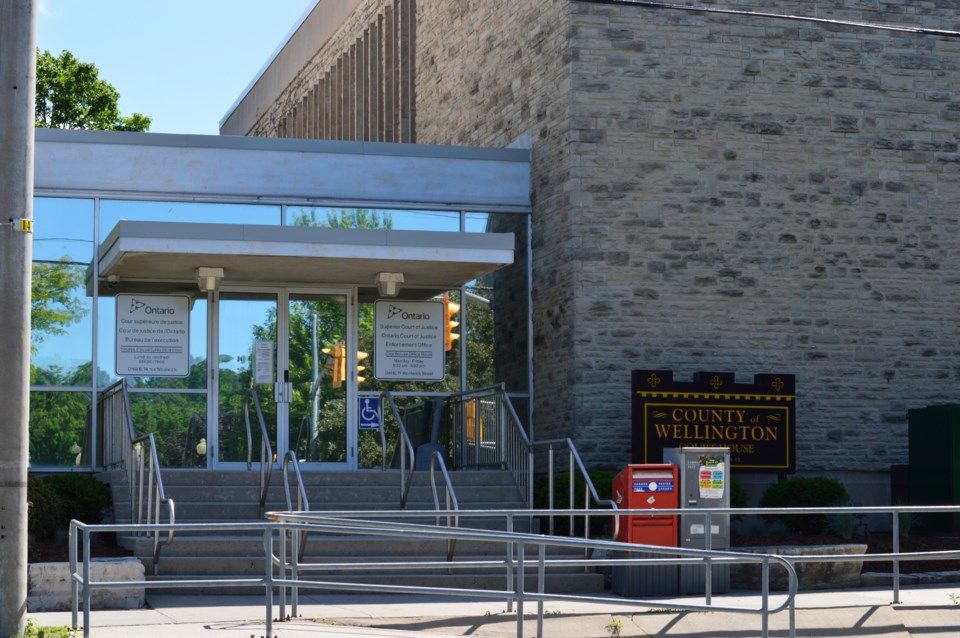The judicial system doesn't do enough to protect victims, believes a Guelph woman who said her request to testify against her alleged human trafficker via audio only has been repeatedly denied.
Danica – not her real name, which is protected by a court-ordered publication ban – doesn't want the accused to see her face out of concern for her own safety. He was in custody at the time of his alleged crimes and they've never met in person.
“Victims do have rights. We need to do something about it,” said Danica. “Obviously we have to keep that person that harmed us accountable for his actions.”
At the same time she feels her safety is more important than testifying in front of him.
“The justice system needs to get better. Right now, it’s just wrong,” she said. “Cases get dropped because victims are scared.”
Danica said a friend connected her with her alleged trafficker.
“Him and I just clicked, we just started talking. ... I gained feelings for him, fell in love. I thought I was his girlfriend.”
She said she told him it had been four years since she stopped escorting and her life was stable.
From there, things escalated quickly, she said, and that he then suggested she should sell her body for sex to make money.
“I was selling my body and giving him all the money because he said it was for our future.”
At one point she wanted out, but she said she felt threatened.
Danica is concerned for her own safety and does not want to testify in front of the accused she has never met.
She said she feels like no one is helping her throughout the process and wants people who may be in a similar situation to her, to know the judicial system is broken in her view.
“So this is a huge issue for victims and survivors of human trafficking,” said Julia Drydyk, executive director of the Canadian Centre to End Human Trafficking (CCEHT). “Having to face your trafficker and the accused in the court of law isn’t just emotionally and psychologically traumatizing and re-traumatizing but it can also create real physical safety concerns."
She explained the province has specific Crown prosecutors who are responsible for human trafficking cases and they have been able to enable video testimony in some cases but it is very inconsistent.
“The tactics that the defense use are also traumatizing in and of themselves. They really reinforce issues of stigma, shame, guilt that individual victims might experience,” said Drydyk.
“Unfortunately, when it comes to the real barriers for individuals accessing the judicial system this is a very serious issue that has not been resolved in Canada.”
In the first year the CCEHT started operations only seven per cent of human trafficking cases they worked with through their hotline wanted any type of referral or connection to law enforcement.
Drydyk said traffickers often embed themselves into victims' lives as a friend, love interest or family member. They use sophisticated kinds of emotional and psychological control. “They are gaslighting, leveraging other information they might have on them, manipulating and exploiting them in the commercial sex industry.
“They’ll use things that they learned about them from their past as well as their hopes and dreams of the future as collateral,” said Drydyk.
Services for victims of human traffic are available in Guelph.
“When a victim does not want to see her accused person there are things that are in place for those situations. However, it has to be granted by a judge. It’s not just, you can ask for it and it’s handed to you, it’s not that easy,” said Elizabeth Kent, executive director of Victim Services Wellington.
Victim Services Wellington can provide victims with security devices like security bars for their doors and contact alarms, as well as change their locks.
“One of the things I think is not only hard for human trafficking victims but I think any victim is the length of time the court process takes,” said Kent.
The Ministry of the Attorney General does not track requests for remote testimony and therefore the number of approved requests are also not tracked.
"VWAP program staff inform victims/survivors of their right to request a testimonial aid (e.g., testimony from behind a screen or outside the courtroom) and can assist by relaying their wishes to the Crown attorney, however, the use of a testimonial aid or request to testify remotely is subject to judicial authorization," said a ministry spokesperson.
